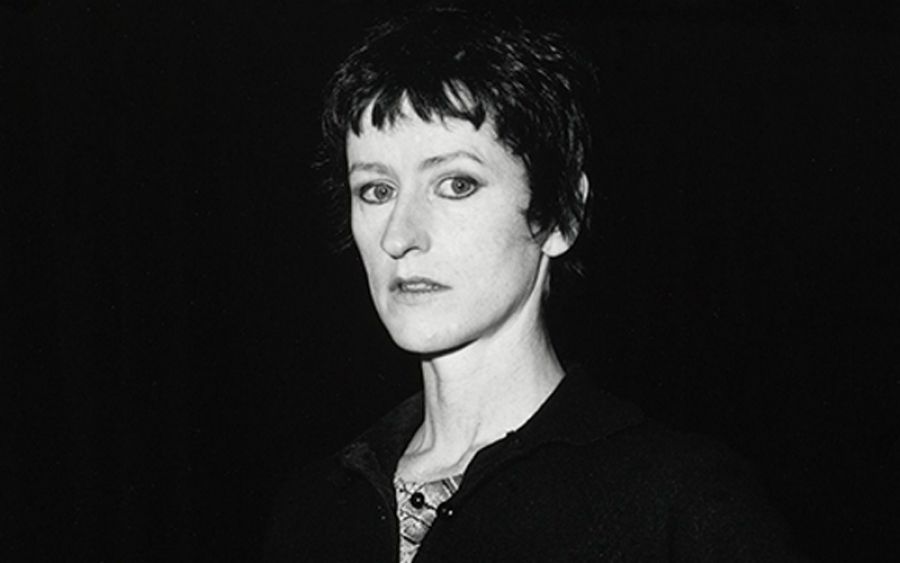
- Free Article: No
- Contents Category: Poet of the Month
- Custom Article Title: Gig Ryan is Poet of the Month
- Review Article: No
- Online Only: No
- Custom Highlight Text:
I admire Jeremy Prynne, Clark Coolidge, Mina Loy, and Lyn Hejinian, but I don’t know whether they have influenced my work. To limit this list in time somewhat: Baudelaire, Rimbaud, Eliot, Auden, Berryman, Ashbery, O’Hara. Among the Australians: Kenneth Slessor, Francis Webb, Michael Dransfield, John Tranter, Jennifer Maiden, Martin Johnston, John Forbes. Everything one reads or hears is an influence. The list seems infinite and includes songwriters such as Thomas Moore and Hank Williams.
Are poems ‘inspired’ or mainly the product of craft?
Craft is often the inspiration, certainly in poems written in exact verse forms, but mainly it is how best to place things, the shimmering everything, together. But as the poem forms, the ‘everything’ changes. The aim is always to make something interesting, exciting, to myself at least. If one knows exactly where and how the poem is travelling, it is probably bad.
What is the difference between poetry and prose?
Prose can seem long-winded to poets, but it is a matter of getting into the writer’s rhythm, as when reading Proust’s long, wittily satiric scenarios. Some of the great novels – such as Proust’s, Joyce’s, White’s – read like poems: rhythm and melody undulate over a longer format. Unless of theOulipo school, as Georges Perec was, prose is written with fewer short-term constraints than poetry, which, being comparatively concise, implies more than states. Each poem must be an exploration. But then, statements about poetry always seem immediately disputable to me.
What circumstances do you need to write a poem?
I can write anywhere, but usually it occurs at my desk; peace and quiet are mostly positives.
Which poet would you most like to talk to – and why?
Baudelaire, though Pope, Byron, Auden, and Plath would all be funnier. I empathise with Baudelaire’s embrace of citified modernity, even as he excoriates it.
Which do poets need most: solitude or a coterie?
Inevitably, you gravitate towards poets you respect and who roughly share your aspirations and tastes. That can keep you on your toes, as does the productive disagreement that ensues. But any peer group really extends back thousands of years. Peter Porter used to quote Stendhal: ‘One can acquire everything in solitude except character.’
What have you learned from reviews of your work?
That my work must be hard to understand! As a reviewer myself, though, I am aware how open to interpretation poetry can be. When reviewers put what I consider to be odd interpretations, I can only think that the poems have allowed that. Of course I am pleased when reviewers enjoy something in my work, but reviews tend to reveal more about the reviewer’s interests than the poet’s. One’s early work is usually met with bafflement or outrage, appropriately.
If Plato allowed you to keep one poem in his Republic, what would it be?
Homer’s Iliad (Richmond Lattimore’s translation).
Do you have a favourite line of poetry (or couplet)?
Too many, but my late colleague Martin Johnston is criminally overlooked. ‘Not that you wouldn’t have gone there yourselves willingly: / where the blood pours out the dead come to the feast.’ (‘In Memoriam’).
Is poetry generally appreciated by the reading public?
Appreciated, yes, but this takes many years to happen, so readers’ tastes are always a generation or three behind the contemporary poet’s. Almost everyone knows some lines of poetry, or lines in songs; love of play in language seems to be innate.
Gig Ryan has published six books of poetry. Her New and Selected Poems was published in 2011 (Giramondo, Australia; and Bloodaxe, United Kingdom). She has been Poetry Editor of The Age since 1998.


Comments powered by CComment